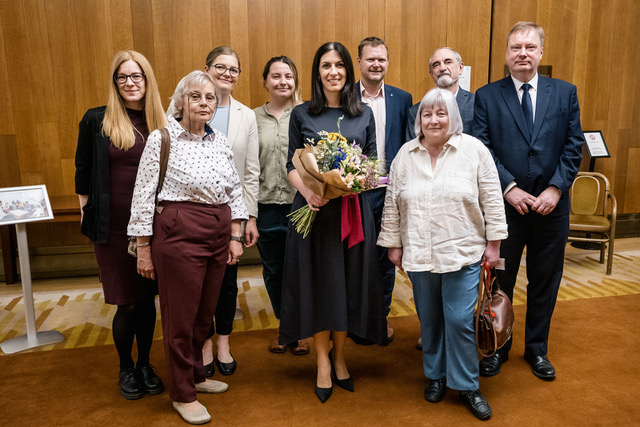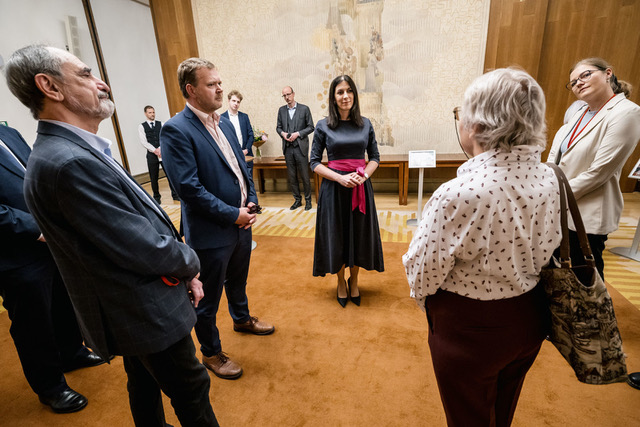
Award-winning organization Memorial finds asylum in the residence of the Speaker of the Chamber of Deputies for its human rights, research, and educational activities
The human rights and educational organization Memorial, after being banned from operating in the Russian Federation, has found refuge in the Prague residence of the Speaker of the Chamber of Deputies. From there, members of the organization have continued their professional work and research activities since 2022. These are focused both on mapping the crimes of the Soviet regime and on their current interpretation. Among other things, researchers have organized dozens of workshops and countless working meetings in the villa. They were awarded the Nobel Peace Prize for their efforts.
The internationally recognized historical, educational and human rights organization Memorial has been operating in the villa of the Speakers of the Chamber of Deputies since 2022. Memorial has long been professionally focused on researching the Soviet repressive system and its contemporary reflections. It was banned by the Russian authorities for its activities, and its members faced persecution, bullying, and harsh treatment in their homeland.
“Memorial researchers systematically contribute to shedding light on the darkest chapters of the Soviet Union and the current Russian Federation. Their efforts were even awarded the Nobel Peace Prize in 2022. It is therefore not surprising that they have long been in the crosshairs of Vladimir Putin’s dictatorial regime for their research and civic activities. I am glad that the villa, which I do not live in myself, was put to meaningful use and could serve a good purpose,” said the Speaker of the Chamber of Deputies, Markéta Pekarová Adamová.
For the past two and a half years, up to eight members of the organization have been working in the building of the First Republic functionalist villa from the 1930s on Ladronka in Prague.

“Thanks to the “asylum” provided, Memorial was able to continue its activities and projects, which were forcibly interrupted by the forced judicial liquidation of the organization’s largest branches in Russia and the emigration of many key collaborators. Some of those who had to leave Russia due to the threat of criminal prosecution found long-term refuge in the parliamentary villa – for example, the director of the Memorial library Boris Belenkin or the archivist and historian Irina Ostrovská. They were thus able to smoothly continue their previous activities, continue to expand the Memorial collection with other books, documents or objects, and record further interviews with eyewitnesses – victims of Soviet repressions. Dozens of workshops and working meetings were held in the Prague villa with colleagues from many other Memorial branches who had to leave Russia or continued their work there in difficult conditions. At these meetings, further interconnection of electronic archives and databases, school projects, etc. were agreed upon. Dozens of researchers and activists found temporary residence in the house at Ladronka as part of “The special scholarship program that Memorial announced for its collaborators to maintain its activities. Thanks to the gesture of Markéta Pekarová Adamová, Prague has become, alongside Berlin or Paris, the main support in preserving the important work of Memorial, which works in a unique way with the memory of Soviet repression and also monitors the current enormous human rights violations in Russia and the situation with the growing number of political prisoners,” added Štěpán Černoušek, Chairman of the Memorial Czech Republic.
The period of use of the premises was initially agreed with the management of the Chamber of Deputies for six months. Taking into account the mutual interest, it was then repeatedly extended after its expiration. The Memorial organization undertook to cover the costs of using the facility, which was provided to them free of charge.

